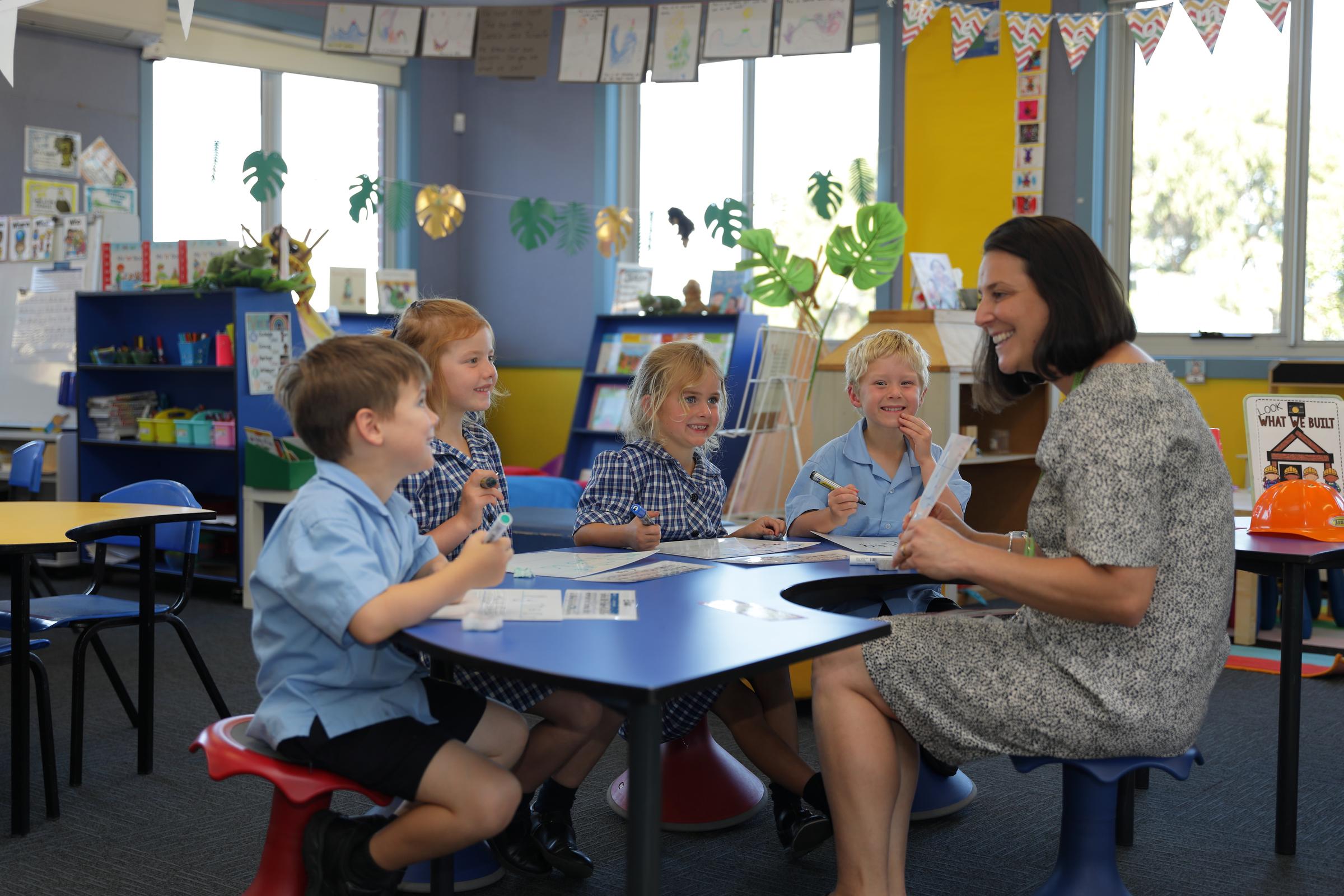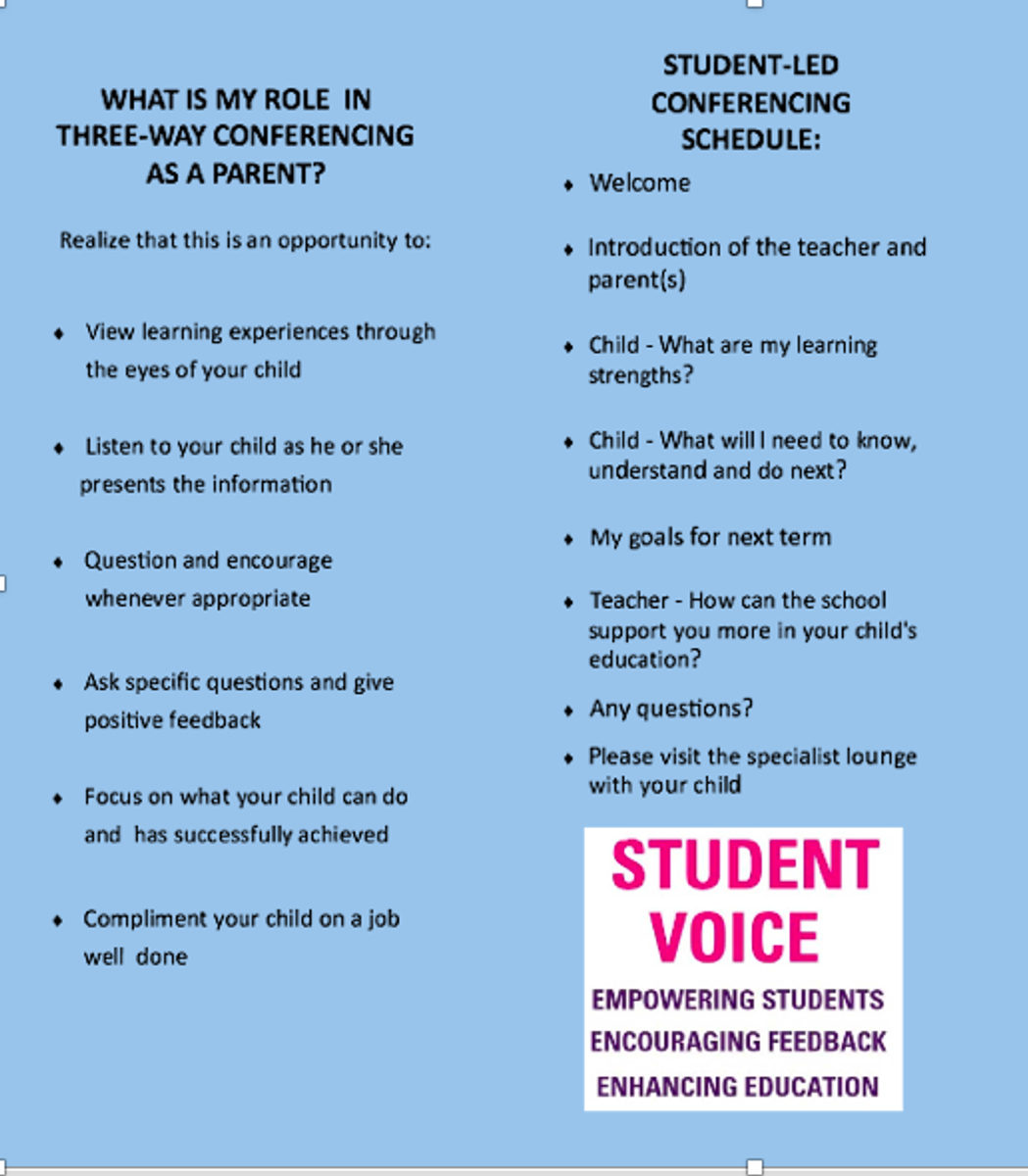Learning and Teaching

A Parent's Guide to Three-Way Conferencing
Click on the link Numeracy@ Home
This site contains activities, tips, and information to support young children's maths learning during everyday activities.
Developed by Monash University and Swinburne as a part of the Numeracy@HOME project. The resources acknowledge that families are children's first maths educators.
What parents and carers can do to promote maths every day
Research shows that one of the biggest barriers to parents and carers engaging in conversation about maths is their lack of confidence in leading maths education at home (Phillipson, Gervasoni & Sullivan 2017; Maloney et al. 2015). Through examining international research, the following types of activities were identified as important for early maths learning, which are easy for parents to use. These include:
- Comparing objects and describing which is longer, shorter, heavier or holds less.
- Playing with and describing two-dimensional shapes and three-dimensional objects.
- Describing where things are positioned, for example, north, outside, behind, opposite.
- Describing, copying, and extending patterns found in everyday situations.
- Using time-words to describe points in time, events and routines (including days, months, seasons and celebrations).
- Comparing and talking about the duration of everyday events and the sequence in which they occur.
- Saying number names forward in sequence to 10 (and eventually to 20 and beyond).
- Using numbers to describe and compare collections.
- Using perceptual and conceptual subitising (recognising quantities based on visual patterns), counting and matching to compare the number of items in one collection with another.
- Showing different ways to make a total (at first with models and small numbers).
- Matching number names, symbols and quantities up to 10’ (Phillipson, Gervasoni & Sullivan 2017).
Supporting Your Child’s Literacy Development at home
Taking part can develop your child’s reading ability, comprehension, and language skills. It could also improve your child’s interest in reading, attitude towards reading, and focus
Engage in activities at home. This is important for your child’s early literacy development. Engage in: joint reading, drawing, singing, storytelling, reciting, game playing, and rhyming. When joint reading, you and your child take turns reading parts of a book. When reading, ask her to connect to the story. Have her tell you more about what she is thinking. You can use her interests to choose books. Give positive feedback and ask open-ended questions during joint reading to boost her interest and critical thinking skills. focus
Engage in activities at home. This is important for your child’s early literacy development. Engage in: joint reading, drawing, singing, storytelling, reciting, game playing, and rhyming. When joint reading, you and your child take turns reading parts of a book. When reading, ask her to connect to the story. Have her tell you more about what she is thinking. You can use her interests to choose books. Give positive feedback and ask open-ended questions during joint reading to boost her interest and critical thinking skills.
For young children, nursery rhymes are especially helpful for language and early literacy development. Play audiobooks or read aloud at home to increase the amount of language your child hears. Hang different kinds of print around your house. Label objects in your home. This can show the importance of language, reading, and writing. Help your child build background knowledge on a topic. Talk about everyday experiences, show your child pictures, and tell her stories.
For older children, play word games, talk about word meanings, and point out interesting or new words when reading together. Ask questions before, during, and after reading aloud. This can help your child focus attention on the ideas in the story. Before reading, look at the book cover and talk about what might happen in the story. During reading, ask what questions he has about the story. After reading, talk about what happened. Ask your child to sum it up and relate the story to what he already knows or has experienced.
Technology can help families meet the literacy needs of their children. Serve as a “media mentor.” Talk with your child about using technology in creative ways. These talks can boost language development, build background knowledge, and help your child develop useful skills. Be an educated consumer of information on the internet. Review the abilities of the developers. Check the quality, usefulness, and content of the information being shared.
Regards,
Megan Barber
mbarber@sjsorrento.catholic.edu.au



